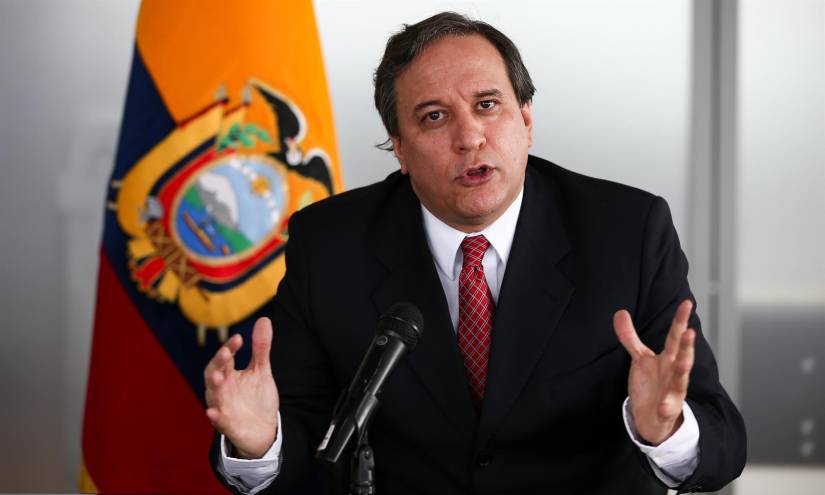RIO DE JANEIRO, BRAZIL – Ecuadorian President Guillermo Lasso will replace his Economy Minister Simón Cueva after eighteen days of protests by the indigenous and peasant movement against the government’s economic policies.
The change of economy and finance minister was confirmed by a government source to Efe on Monday and is expected to be officially announced in the next few hours.
Cueva has been part of Lasso’s cabinet since the beginning of his term, a little more than thirteen months ago. It is characterized by strict fiscal discipline and sound macroeconomic fundamentals, which include a tax reform to increase revenues.

This should achieve the goals of Ecuador’s US$6.5 billion loan program with the International Monetary Fund (IMF), of which US$5.8 billion has already been disbursed.
The IMF approved the latest allocation of US$1 billion last week after the government implemented a series of corrective actions required by the institution to address several complaints that had previously prevented it from receiving the funds.
These included audits of state-owned oil companies and more accurate reporting on government spending on pensions and health care by the Ecuadorian Institute of Social Security (IESS).
During Cueva’s tenure at the Ministry of Economy and Finance, Ecuador’s gross domestic product (GDP) registered a 4.2% increase in 2021 compared to 2020, allowing the country to advance its economic recovery but without reaching pre-Covid 19 pandemic levels.
Likewise, the Ecuadorian economy grew by 3.8% in the first quarter of 2022 compared to the same period in 2021 and by 0.4% compared to the last four months of last year, driven by domestic consumption and private investment, both domestic and foreign.
However, Ecuadorian consumers have also been affected by a sharp increase in prices, in line with the global trend, so the increase in the cost of living was one of the reasons that led the indigenous and peasant movement to call for an eighteen-day mobilization.
These demonstrations, in which there were six deaths and about 500 injuries between protesters and law enforcement officers, ended last Thursday with an agreement between the government and the organizations that had called for the protests, in which the executive partially recognized the list of ten demands.
The agreement’s main measures include a 15-cent-per-gallon (3.78-liter) reduction in subsidized fuel, the repeal of a decree to promote petroleum activities, and a commitment to stop granting mining concessions in sensitive areas such as nature reserves and ancestral indigenous territories.
With information from EFE

